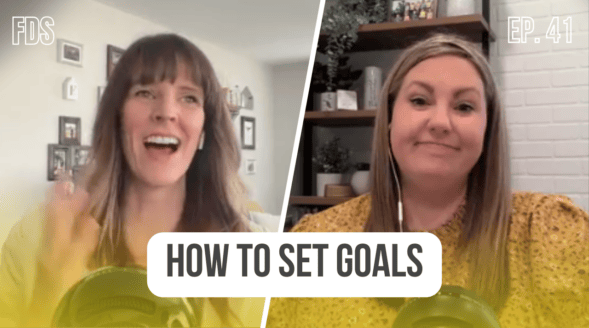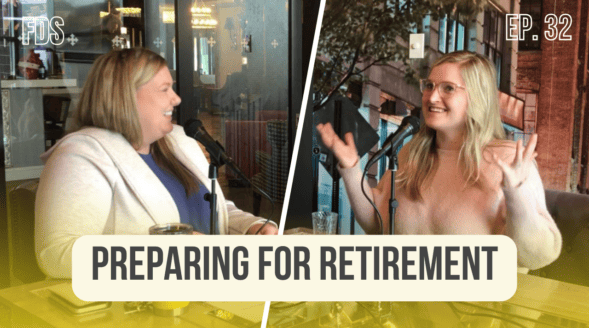Your Guide to Open Enrollment & Employee Benefits [Video]
by Trevore Meyer, CFP® / August 29, 2022Today we are going to talk about open enrollment. I may say that, and you may have no idea what I am talking about, but don’t fret because that is what I will be explaining.
What is open enrollment? When we work for our employers, we have many benefits beyond what our employers pay us. These could be benefits like: health insurance, disability insurance, life insurance, legal plans, 401(k) or 403(b) plans, FSA, or Health Savings Accounts (HSA).
All of these things make up the entirety of our enrollment package provided through employers. Some of these options can only be changed once a year. This period of time is called open enrollment. It’s when everything is open for you to enroll, disenroll, or make changes to your benefit packages. Now how do you know which employee benefits are right for you?
Open Enrollment Benefit Options
Health Insurance
Let’s start with health insurance. This is often the biggest benefit employers provide. It is really important to make an intentional choice for you and your family. A couple things you need to look out for are the deductibles, the out of pocket maximums, and the premium amounts. You should account for all these variables combined, and your anticipated medical needs in the upcoming year. Then you can start to determine what is the right plan for you. We also have other videos on how to think about these variables, click here to watch!
Disability Insurance
Now, after health insurance, let’s talk about disability insurance. None of us think we are ever going to be disabled, but the reality is something could happen. If your employer offers disability insurance, quick note that not every employer does, but there are two things we would encourage you to look at. One is short term disability (STD) and the second long term disability (LTD).
The more important of these options is the long term disability plan. This is because if you have have an extended disability, you will receive a monthly payment from this disability insurance plan to replace your income. If you aren’t working, it is important that you have an income replacement. Now I said the short term plan isn’t as important because a core part of your financial plan is having an emergency fund. You should have saved up to 3 months of your expenses, or more, that way you can weather the storm in case something does happen.
Life Insurance
Next up, life insurance. We encourage you to take whatever your employer gives for free. Often this is an amount around $45,000-$50,000 or a percentage of your current salary. If this life insurance plan is free of charge, that’s a no brainer to take it without question. However, what you might want to question is if you have to pay premiums. If you have to pay the premiums on the policy, you might want to look and see if these premiums are cheaper than what it would cost you to take out your own life insurance policy.
Sometimes you might be in a situation where you have an illness or disease where it is hard for you to qualify for coverage outside of this benefit. Through your employer, you might have the option to buy up more years or multiples of your annual salary. We would encourage you to take a look at that as it will help not having to jump through extra underwriting hoops to qualify.
Legal Plans
Now onto legal plans. In certain circumstances, we might have a need for an attorney. These instances could be like getting estate plans and adjusting your power of attorney, or could even be as small as dealing with a traffic ticket. Be mindful that through your employer, you might have access to a legal plan. Generally, you pay a very small amount from your paycheck. Your employer then gives you access to an attorney at significantly reduced costs than if you hired them directly or separately. We often encourage use of a employer legal plan for clients to get estate plan documents completed. One reason is these estate planning documents are expensive, challenging to change, and require lots of time. If there is an option to reduce this cost while getting the same documents in place, it makes sense to go that route.
401(k) or 403(b)
Moving onto 401(k)s and 403(b)s. This is one of the few options you can change that is not required to go through the open enrollment process. However, because you will already be going through your benefits it makes sense to double check that your elections are set up properly. Are your contribution amounts set up properly according to your financial plan? Do you have the right investments associated with your accounts? Are your beneficiaries elected and who are they? As you go through the once a year open enrollment process, we encourage you to also check your 401(k) or 403(b) plans. You don’t want to leave anything to chance.
FSA or HSA
Finally, let’s talk about your FSA and HSA accounts. These accounts coincide with your health plan. The FSA is something you can only change once a year. However, with the HSA, you should be able to make changes to these throughout the year. It is important to note that your ability to contribute to these accounts is directly related to the particular type of health insurance you have with your employer. As a rule of thumb, if you have a high deductible plan, you generally can enroll in an HSA. If you don’t have a high deductible plan, you would be looking at the FSA. The FSA is a contribution that can only be changed at open enrollment period.
Open Enrollment is When You Make Changes
It is important to make sure your benefits are set up the way you need as they only change once a year. The insurance benefits you can only change during open enrollment are health, disability, life, legal, and FSA. Benefits you can change anytime, but you should review at open enrollment, are 401(k), or 403(b), and HSA.
Now, there are circumstances when you can change these benefits at another time during the year. This is called a qualifying life event (QLE). This is a time period when you have a significant change in your life circumstances: you get married, change jobs, lose a job, your spouse loses a job, you have a kid, or you adopt a child. Any event like this opens a 30 day window for you to change all the benefits we have mentioned above. Keep in mind with your 401(k) or 403(b) you should still be able to make changes to these throughout the year, however we would still encourage you to evaluate these during open enrollment period.
We have said that enrollment is a super short period, often only two weeks with some employers. Generally this time period falls within the latter part of the year, lasting from around September until November. These benefits usually start on the calendar year. So your employers want to know which benefits you are electing into before the start of the year so that they can prepare their systems ahead of time.
Need Help with your Open Enrollment Benefits?
Now, we understand there is a lot that goes on with these open enrollment periods, and a lot with these benefits in general. It would be way too challenging to break these down for each person who watches this video. But, if you have questions about your open enrollment or want to learn more about which benefits your family needs, reach out! We would love to help you sort it all out.
Ready to take the next step?
Schedule a quick call with our financial advisors.
Recommended Reading
How to Set Financial Goals (According to a Coach) [Video]
Many aren't sure how to set financial goals. In this video, ICF coach Sarah Fincher shares how she works with her clients on their goals.
Preparing to Transition to Retirement [Video]
In this video, Stephanie Geisler, LPC, discusses how to work through emotions of financial choices of making the transition to retirement.

Trevore Meyer, CFP®
Trevore has nearly a decade helping families with their financial planning needs. He is incredibly passionate about helping folks visualize and explore what their ideal lives look like and following it up by helping them get there.

